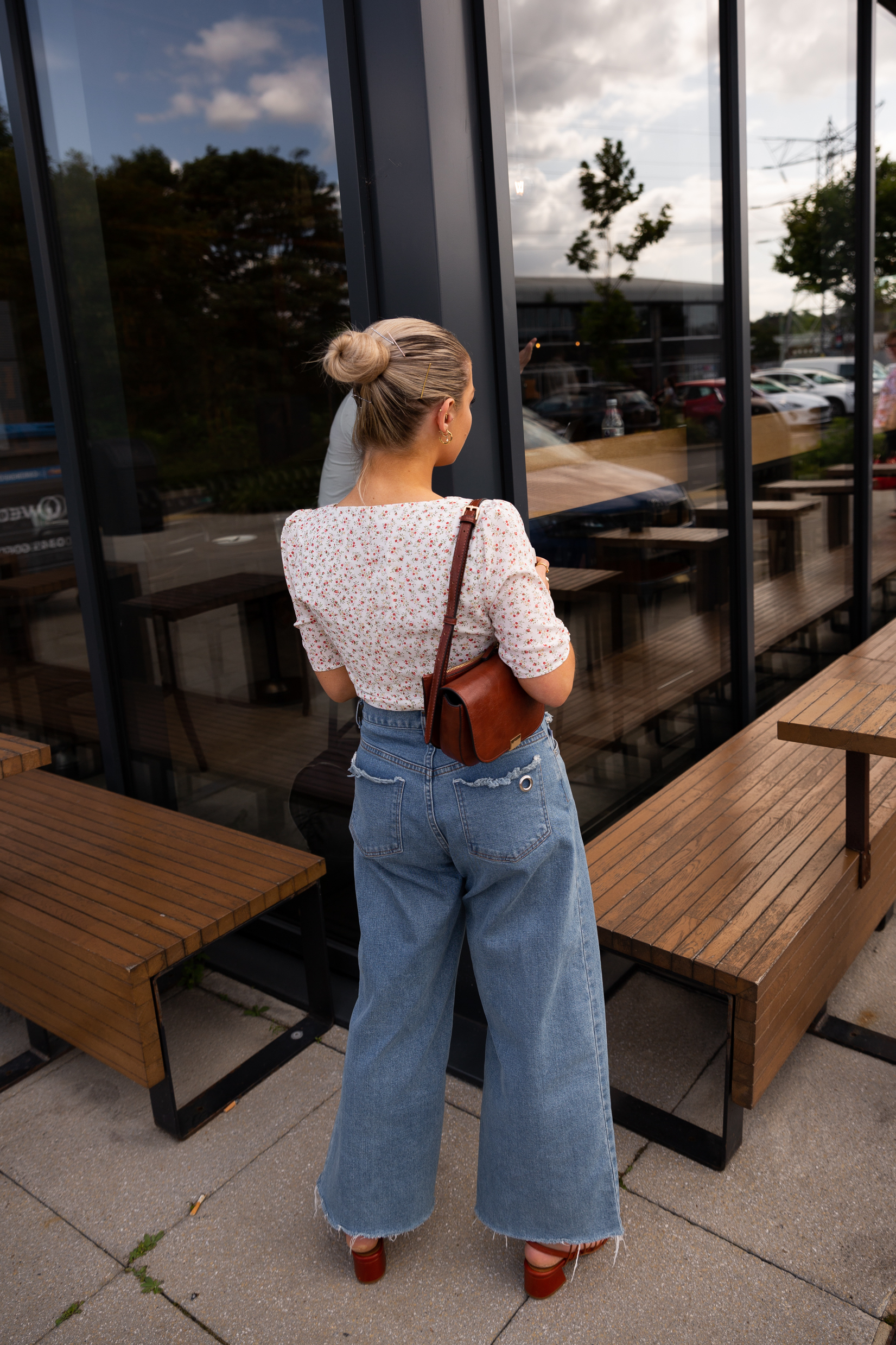It’s easy to float in your own bubble when you’ve worked for and by yourself for a long period of time. When I first mentioned that I wanted to write something about solo working, I was surprised by how many different people were asking questions and sharing the same sentiments (usually “how do I stay motivated?” which is like asking “how do I get Alex Turner to date me?” - if I knew the answer, I wouldn’t be sitting at home in Ipswich in a baggy old sweatshirt drinking lukewarm tea). The careers landscape is changing - especially for young people - and more and more of us are opting for self-employment, flexible hours and remote working over the traditional 9-5.
In fact, according to a study by the Office for National Statistics released in February last year, more people than ever are self-employed, with 16-24 year olds seeing the second strongest growth in all of the age brackets (although the 45-54 age group still represent the largest share of self-employed people at 4.1% of total employment). So it’s happening: the way we work is shifting. And alongside that, we have a sea of people getting to grips with the different dynamics of operating solo. We benefit from the freedom and variety that comes with it, but we also lose out on the community environment of a shared workplace and the platform for sharing ideas that that provides us. With that in mind, I thought I’d answer some of the most common ‘working from home’ questions that we aren’t able to lean over our desk and shoot at our colleague.
Everybody has their own ways of working so this is just what suits me, but if you’re also in the same boat, you might find a few threads of similarity that you can tease out and weave into your own web.

Best practises for starting your day in a motivated way
I’ve been working solo for about two and a half years now, and in that time I’ve learned (through trial and error) that there are a few best practises for feeling as switched on and as motivated as possible.
Firstly, I have to wake up at a decent time. Keiran leaves for work at 7:20 a.m. so our alarm goes off at 6, and we usually snooze for about half an hour before trundling downstairs to make a tea and Keiran’s lunch. Depending on what I have on for the day, I’ll either then shower and get ready to shoot, or make another brew and head for my desk.
I like to get a head start on the working day so I can get things done without the distraction of conversation, so writing lists and sending emails at 7:30 suits me, but if you’re not so much of an early bird, then just making sure you wake up at a consistent time each morning will do. Lay ins are great but if you afford yourself this luxury every day, then it’s no longer a luxury and you’re just getting up late. You don’t need to operate on a 9-5 clock, but personally, I like to be ready and working at the time that other people who communicate with me are also ready and working.
It’s also important for me to put on proper clothes (most of the time - if I’m grumpy then the tracksuit bottoms are going straight on). If I’m wearing pyjamas then I’m in a pyjama mindset, which is to sit down and melt and inhale my weight in madeleines and Terry’s chocolate orange. It doesn’t have to be anything fancy - just jeans and a t-shirt will do - but it helps shift my perspective from being chilled at home to being switched on for work. Prepping my skin for the day is also a must, so I feel clean and cleansed and ready to go.
I very rarely work from my bed or sofa. These places to me are where I slob out and so my natural inclination is to do just that, especially when I’m struggling to focus or I’m bored and disengaged. I’m lucky in that I have a few different spaces in our home to choose from, but I never work in any one spot consistently as I like the environment to feel fresh in order to motivate myself. I know for those who live with other people or who live in flats that the option to move around might not be as easy, but take what you can. I’m currently sitting on the top step of the stairs with my laptop on the landing because it’s a great height for sitting upright and typing. I often write when I’m doing a pee. I stand up at my kitchen counter and bash emails out as I make my tea. Even emailing from your phone for a hot second so you can sit outside in the fresh air with a coffee can make a difference. Keep your environment fresh and keep your environment clean (a tidy space = a tidy mind).
Oh, and if you can avoid it, don’t sit facing the wall. Sit yourself in front of a window or somewhere with as much light as you can steal, and you won’t feel quite so boxed in or trapped. Being able to see out into the world makes me feel much happier and relaxed when I’m working from home.

How do I stop procrastinating?
And then we move on to motivation’s weird and wired cousin, procrastination. They say the first step on the road to recovery is acceptance, so if you’re a prolific procrastinator and you’re at your wits end with how easily and happily distracted you become, then it’s time to make peace with the person you are. We all procrastinate, whether we’re working from home, working from the office, working from Starbucks - it doesn't matter. We all find moments where dusting the underbellies of shelves seems more important than sending invoices, and we all find moments to make our 50thousandth hot drink of the day. Our mind’s magpie will never be at a loss for shiny things to distract us, especially when we’re not surrounded by a team of other people who can finger-click us back into focus.
My favoured route seems to be sporadically Googling whatever obscure question has crept forward from the back of my mind. “What does toxophilite mean?” “Was Cornwall named after a corn wall?” “Is pepper bad for you in the same way that salt is?” “Could Pascal Sauvage really have become king?” This is just a selection of the bullshit my brain entertains when it can’t seem to locate the word it’s looking for and decides to take a detour instead. But it’s okay: I know this how my concentration strays, and so I know that if I’m strict with myself I can eventually get my work done.
It’s all about learning our own behaviour, I think; if every time I wanted to procrastinate I allowed myself a little break, I would never get anything finished. I have to force myself, despite the difficulty, to keep writing and keep reading and keep editing, and I’ll get there. For others, however, taking the short breaks helps them to decompress from their earlier session and zone back in with more of an acute focus. By taking themselves away for a moment, they’re able to soothe the procrastination monster inside themselves by giving them exactly what they want but in a more measured way - a little bit of something else.
We all work differently, so you have to figure out which is more like you: are you someone who thinks to procrastinate often, and so you have to be stricter with yourself in ensuring tasks are finished before allowing your mind to wander, or are you someone who should take creeping distraction as a sign that a break needs to be had?
Either way, setting aside some smaller tasks for when you’re struggling to focus will still give you a sense of achievement that things are getting done, but also won’t tax your concentration too much. Think of it like autopilot. I’d place sending invoices in this camp, along with reading a certain amount of pages of my book ready to review, organising the recycling in my office, planning future work, returning parcels - you know, the admin kind of crap you don’t want to waste the good brain juice on but that still needs to get done.
If you always reach for your phone, put it on Do Not Disturb and place it on charge in another room. Close the messenger apps on your laptop completely, so your interest isn’t piqued by some incoming gossip. Don’t have Netflix on unless you’re resolute that you won’t waste every other minute peering at the TV over your screen. Get some fresh air. Change locations in your home. Break your tasks up into smaller, more manageable chunks so you aren’t deterred by what feels like a mountainous effort ahead of you. And stop opening Instagram - there’s nothing new on there and you already know that because you closed the app all of 10 seconds ago.
(P.S. I don’t think many ‘working from home’ web posts will tell you this, but if you’re feeling super distracted and frustrated that you can’t focus, go and masturbate. Orgasms are great stress-relievers and frequent, good quality orgasms have also been linked enhanced creativity and confidence. You’re literally doing yourself a favour.)

Techniques for staying organised
I use two tools to stay organised: my bullet journal and Trello. The bullet journal I use for daily list-making and the evacuation of one too many thoughts, and Trello I use for keeping track of all the larger projects so I don’t forget to look over certain things in the course of the week. The company I work for part-time also uses Asana, so I’m often logged in to that too. It might seem contradictory to use three different organisational platforms in order to stay focused, but dividing things up and breaking things down is how I make sense of things. I can then prioritise, plan, and delegate if necessary. I wrote a post on how I organise my bullet journal which you can find here, but there are masses of videos and tutorials online so there’s plenty to help you get started.
Working hours and switching off when your home is also your office
This is another reason that I very rarely work from my sofa or my bed; I find it hard to transition into work-mode, but then I also find it hard to transition out. I think it’s important to have a physical space which is reserved for R&R only, whether that’s your bed, the bath, the balcony, the *insert another location which starts with a B here*. It’s difficult to create a division between work/home life when they both orbit around the same postcode, but reserving spaces and activities you find comforting for when work has finished does help.
My working hours change depending on how busy I am, what projects I’m working on and whether I’m writing or shooting. The earlier I start, the earlier I finish (another good reason for getting up before everybody else), and I’m trying now to work more to a task list as opposed to set working hours.
For example, at the start of the day I’ll think about the time I have and what I think I can reasonably achieve within those parameters (side note: do not set yourself impossible goals such as ‘write a book by Friday’ because it won’t get done, it will take away from other, smaller jobs, and you’ll feel crap about it; break big jobs down into little ones and space them out over a longer period of time). I’ll then write a list of what I need to do, and start. If I can tick everything off by 3pm, then 3pm is the end of my day. If I still have tasks outstanding at 7pm, then I keep working.
I didn’t decide to work for myself so I could continue wasting time for the sake of it; if I can get what I need done more quickly and then enjoy the rest of it reading, playing games, cooking - whatever - then that ultimately is better for my mental health and my general motivation moving forward. But equally, I recognise that self-discipline is vital to a successful solo business, and so if I need to work in the evening, then I will. You have to try and find that sweet spot of balance (easier said than done, I know).
I don’t really take a lunch break because I’d rather get everything done at once and then enjoy my downtime, but it’s totally up to you if you need a slightly longer break in the middle of the day to refresh for the afternoon.
My closing TedTalk
Don’t feel guilty about being more flexible with your hours if you work for yourself or from home. Working hard and working smart are two different things. Quantity and quality are also two different things. Say you get to Friday 2pm, you’ve been running around like a headless chicken all week and you’re exhausted, but you feel you have to push forward to 5:30pm otherwise you’re slacking off. What you produce in that time (when you’re not refreshing Twitter or re-reading the same email for the 15th time) is a pile of crap, and when it gets to clocking off time, you feel quietly furious that you’ve wasted that time. What’s the point? What did you gain from that, other than the security that nobody can accuse you of being a lazy lay-about?
Answer this next question for me: if you worked in an office and your boss gave you Friday afternoon off, would you rejoice and rapidly fuck off, or would you feel guilty and ask to stay just so somebody who doesn’t understand what you do has no ammunition to attack?
My point is that you don’t need to keep proving that what you do is valid - it is because you’re already doing it, so enjoy the fruits of your labour. Take time off when you deserve it. Finish the day early when you can. Work from coffee shops. As long as you feel like you’re achieving at the right level for you (again, we’re all different, and it takes me about 3 hours to write a blog post like this so I can’t churn five out a week like other people can), then be secure in yourself. When you take pride in what you do you also take it more seriously, and so the getting up early, the being strict with distractions, the organisation across all these different platforms - it gets easier.
Above all else, remember: if you aren’t enjoying working from home or working for yourself, there’s no shame in doing something else. There are obvious perks but there are also the corresponding downsides, and do you know what? Like any other career path, it isn’t for everyone. Your mental health and your happiness come first, and if you’re finding that those are becoming isolated and diluted by the repetition of the same four walls, then do something else, if even for a little while.
That’s the good thing about working from home - you can (and literally do) always come back to it.
 Idle Waters: Quaint Cottage Countryside Retreat
Idle Waters: Quaint Cottage Countryside Retreat
 Why Solo Travel & Why Now? What Solo Trips Mean To *Us*
Why Solo Travel & Why Now? What Solo Trips Mean To *Us*
 Unplugged Retreat: A ‘No Phones’ Countryside Break
Unplugged Retreat: A ‘No Phones’ Countryside Break
 New Home Tour
New Home Tour



